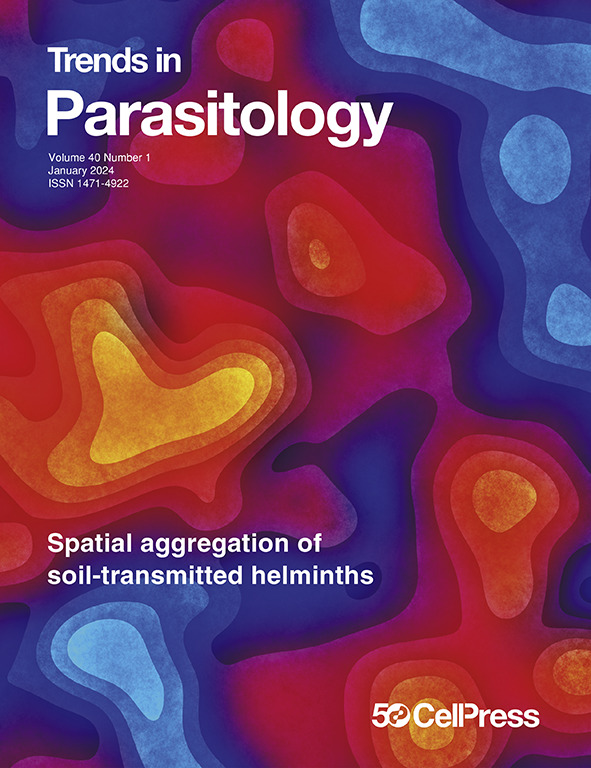逐步淘汰光合作用,并将叶绿素武器化?
IF 6.6
1区 医学
Q1 PARASITOLOGY
引用次数: 0
摘要
在真核生物的进化史上,光合作用已经多次独立消失。令人惊讶的是,合成叶绿素的能力有时在失去光合作用后仍被保留。Jacko-Reynolds等人在一组顶复合体寄生珊瑚中发现了这种现象。可能的解释包括在细胞器到细胞核的信号传递、分子欺骗和防御捕食者中的作用。本文章由计算机程序翻译,如有差异,请以英文原文为准。
Phasing out photosynthesis - and weaponising chlorophyll?
Photosynthesis has been lost independently many times in eukaryote evolutionary history. Surprisingly, the ability to synthesise chlorophyll has sometimes been retained after loss of photosynthesis. Jacko-Reynolds et al. show this phenomenon in a group of Apicomplexa parasitising corals. Possible explanations include a role in organelle-to-nucleus signalling, molecular trickery, and defence against predators.
求助全文
通过发布文献求助,成功后即可免费获取论文全文。
去求助
来源期刊

Trends in parasitology
医学-寄生虫学
CiteScore
14.00
自引率
3.10%
发文量
148
审稿时长
6-12 weeks
期刊介绍:
Since its inception as Parasitology Today in 1985, Trends in Parasitology has evolved into a highly esteemed review journal of global significance, reflecting the importance of medical and veterinary parasites worldwide. The journal serves as a hub for communication among researchers across all disciplines of parasitology, encompassing endoparasites, ectoparasites, transmission vectors, and susceptible hosts.
Each monthly issue of Trends in Parasitology offers authoritative, cutting-edge, and yet accessible review articles, providing a balanced and comprehensive overview, along with opinion pieces offering personal and novel perspectives. Additionally, the journal publishes a variety of short articles designed to inform and stimulate thoughts in a lively and widely-accessible manner. These include Science & Society (discussing the interface between parasitology and the general public), Spotlight (highlighting recently published research articles), Forum (presenting single-point hypotheses), Parasite/Vector of the Month (featuring a modular display of the selected species), Letter (providing responses to recent articles in Trends in Parasitology), and Trendstalk (conducting interviews). Please note that the journal exclusively publishes literature reviews based on published data, with systematic reviews, meta-analysis, and unpublished primary research falling outside our scope.
 求助内容:
求助内容: 应助结果提醒方式:
应助结果提醒方式:


